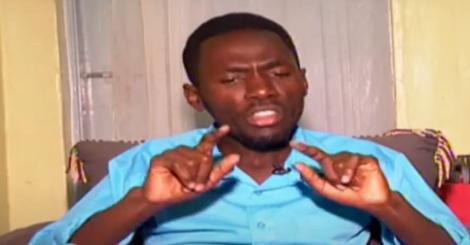In a sit down with KTN News, the lecturer of the unnamed Kenyan university identified only as Frank Lumumba disclosed that he had faced hardship raising two-month rent as well as putting a meal on his table and had to take up odd jobs to make ends meet.
He further hinted that he was forced to sell some of his household items as the pandemic affected the country’s economy and paralysed various industries moreso, education.
“As you can see now, you realise my TV, a 32 inch, is missing. There was a microwave there, there was fridge there. Now when you look around, they are not there.
“The house rent itself has become a problem, For the last two weeks, I was doing mjengo (construction work) because you know they are quite available,” he explained noting that he had two months rent arrears.
The video shows the lecturer carrying heavy stones at a quarry in the hopes that at the end of the day, he would make enough earnings to afford him the daily meal.
His supervisor at the site praised Lumumba’s bravery in opting to take the job despite his academic qualifications.
“You cannot be picky with jobs. Whatever is present is what we carry out which is why I like Lumumba. He did not look at his qualifications he just looks at the work,” stated the site supervisor, Anthony Oduor.
Lumumba is just one of the many part time lecturers whose woes have piled up way after the Covid-19 pandemic struck the country.
In 2019, it was not uncommon for the lecturers to hold protests after decrying delayed payments forcing most of them to live as paupers despite hard work.
According to complaints lodged at the Universities Academic Staff Union (UASU), some part time lecturers have pay deficits that date as far back as 2013.
“Part-time lectures who are teaching at the university are not being paid. The same goes for Technical University of Kenya, JKuat and even the University of Nairobi. These lecturers are suffering across all public universities,” Uasu Secretary General Constantine Wasonga was quoted in 2018.
Lumumba appealed to the state to intervene and help lecturers in private institutions.
He further argued that e-learning was not a fair means of dispensing knowledge by universities since a sizeable number of university goers could not afford laptops.
